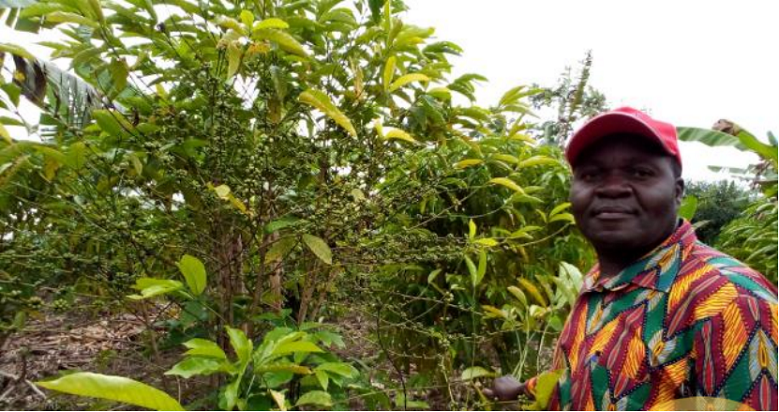A coffee farmer in Northern Uganda
Civil servants in Gulu have been challenged to embrace coffee growing to supplement their income.
Samuel Lagu, the Gulu Deputy Chief Administrative Officer, gave the advice on Thursday during a sensitization working on matching grant procedures for coffee and cocoa in Gulu City.
According to Lagu, farming is the only way of fighting poverty and coffee is among the reliable cash crops because of its demand in the international market.
Lagu appealed to the officials at the Uganda Coffee Development Authority (UCDA) to distribute fast-maturing coffee seedlings and continue sensitizing coffee farmers so that they get the best yields.
Christopher Opiyo Aterere, the LCV Chairperson Gulu, who is also a coffee grower, appealed to fellow coffee farmers to ensure that they produce high-quality coffee, something he says starts from planting, maintaining the farms, harvesting, storage, and packaging.
Atekere called upon the extension farmers to be close to the farmers to help them, given that coffee growing is fairly new in the sub-region.
Winifred Oyella, the regional Coffee extension officer at UCDA commended the farmers for embracing coffee growing.
Oyella says the new policy that requires coffee farmers to form groups and receive seedlings under the Parish Development Model-PDM should be reviewed.
According to Oyella, people normally expect various support when they form groups and when their expectations are not met, they disintegrate.
She adds that although there are 1,230 registered coffee farmers in Omoro and 243 in Gulu district, very few have formed groups.
Oyella says the PDM policy which requires coffee farmers to be in groups is affecting the popularization of the enterprise, given that they still have the perception that the cash crop does not do well in the north and has no market.
In 2014, UCDA started a nationwide campaign to replant coffee and increase production which had stalled at 3.5 million bags. However, officials at the UCDA Gulu regional office have said the coffee yield in the Acholi sub-region has stagnated at 500,000 bags for the past three years.
-URN





